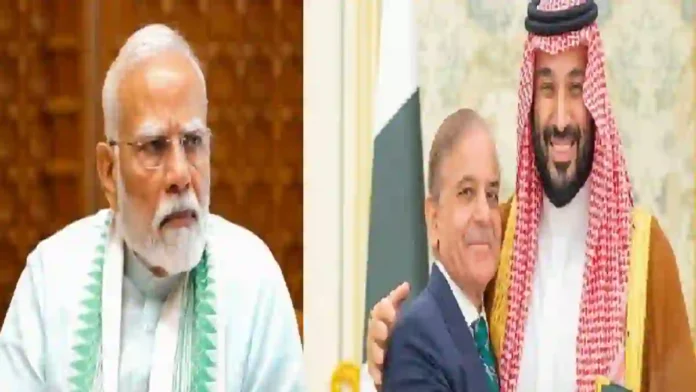The Saudi Arabia-Pakistan defence pact formalises a longstanding security partnership into a mutual defence agreement, stating that any aggression against one country will be considered aggression against both. This is a symbolic and strategic commitment but specific operational details and triggers remain classified or undisclosed.
Saudi Arabia’s motivation includes securing strategic depth against regional instability, particularly after Israel’s recent military actions in the Gulf region and concerns about US defence commitment. For Pakistan, this pact serves as diplomatic and security support amid ongoing tensions with India.
Read- Forces To Form 3 Joint Military Stations To Bolster Integration
Regarding Saudi involvement if India strikes Pakistan again, the pact’s wording implies a collective military response, but experts caution it is more about deterrence than assured combat deployment. Saudi Arabia has a capable air force but actual intervention in a South Asia conflict poses logistical and political complexities. Analysts suggest Saudi public statements stress defence cooperation and joint deterrence rather than direct frontline combat engagement at this stage.
On access to Pakistan’s nuclear arsenal, no formal transfers or sharing of nuclear weapons or command are publicly confirmed. Historically, Pakistan has maintained strict control over its nuclear weapons. The pact stops short of ceding nuclear access, but Saudi Arabia may be considered under Pakistan’s nuclear “umbrella” as a strategic deterrent, given shared Islamic and geopolitical interests. This means Pakistan’s nuclear capabilities indirectly extend deterrence over Saudi Arabia’s security.
Regarding hostilities between Saudi Arabia and Iran or the Houthis, Pakistan’s involvement is less clear. While Pakistan historically balances relations with both sides, direct military involvement in Saudi-Iran tensions or over Yemen’s Houthi conflict would depend on Islamabad’s own strategic calculations and international pressure. As a nuclear state, Pakistan generally avoids overt regional entanglements that could escalate into broader wars but might support Saudi security diplomatically or through intelligence cooperation.
If hostilities resume between India and Pakistan, the pact aims to strengthen Pakistan’s deterrence by signalling external support. Conversely, Pakistan’s engagement in any Saudi conflict with Iran or Houthi rebels is not guaranteed and likely contingent on wider regional dynamics.
Read- Saudi, Pakistan Seal Mutual Defence Pact: Attack On One Deemed Attack on Both
Read- Su-57E With Zircon: India’s Hypersonic And Air Dominance Edge?
The Indian government is studying the pact’s implications carefully. While it acknowledges the pact formalises a long-standing informal relationship, it remains cautious about potential escalations and is committed to protecting India’s national security and regional stability.
In Summary
Saudi Arabia and Pakistan have a formal defence pact treating attack on one as attack on both to enhance joint deterrence.
Saudi Arabia is unlikely to have direct access to Pakistan’s nukes but benefits from Pakistan’s nuclear umbrella as deterrence.
Saudi military intervention if India attacks Pakistan is possible but likely limited to joint deterrence posturing rather than immediate combat support.
Pakistan’s involvement in Saudi-Iran or Saudi-Houthi conflicts is uncertain and more dependent on Islamabad’s strategic interests.
India remains alert and cautious but has not imposed any immediate changes in policy.
This pact is a strategic signal reflecting shifting alliances and regional anxieties amid broader Middle East and South Asia tensions. However, real operational cooperation and conflict involvement remain complex and uncertain at this stage.
Based On WION Video Report
Agencies




